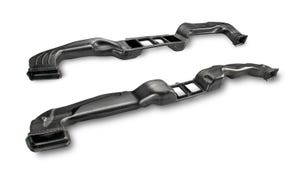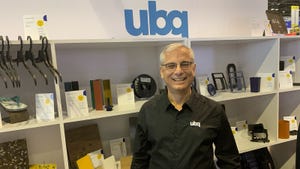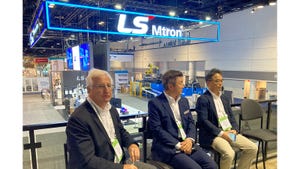AMBA helps toolmakers develop more effective mold lien laws
Moldmakers are going to start playing hardball with their customers in regard to being paid for tooling. Bankruptcies among molders and OEMs are putting many mold suppliers in a squeeze that threatens their very livelihoods, and they are ready to say, “Enough!” In response to demand from its members, the American Mold Builders Assn. is working with members and chapters to help restructure current mold lien laws in various states to put moldmakers in a more favorable position to get paid.
March 10, 2009
Moldmakers are going to start playing hardball with their customers in regard to being paid for tooling. Bankruptcies among molders and OEMs are putting many mold suppliers in a squeeze that threatens their very livelihoods, and they are ready to say, “Enough!” In response to demand from its members, the American Mold Builders Assn. is working with members and chapters to help restructure current mold lien laws in various states to put moldmakers in a more favorable position to get paid.
|
To further that effort, the AMBA produced a webinar on Jan. 27 with David S. Lefere, a partner with Bolhouse, Vander Hulst, Risko & Baar, P.C. in Grandville, MI, that discussed mold lien laws and what members can do to help the effort to institute more favorable laws in their own states. Lefere works with tool, die, and mold manufacturers in Michigan on issues related to mold lien laws.
In the 1990s, the Society of the Plastics Industry got mold lien laws passed in about 38 states, but these are “possessory,” and favor molders because they require possession of the mold to enforce the law. They aren’t much help to mold manufacturers, who often ship the mold prior to final payment, and thus no longer have possession. They also don’t mention the words “moldbuilder,” “mold manufacturer,” or “moldmaker” as a part of the process, and use the phrase, “possession of the mold” as a factor in securing the lien. This language makes it difficult for moldmakers to get remedy for nonpayment on a mold already sent to a molder or OEM. For comparison, Kentucky’s mold lien law mentions molders in connection with molds, tools, dies, patterns, and so on, while Ohio’s mold lien law specifically uses the term, “moldbuilders.”
To benefit mold manufacturers, true moldbuilder lien laws require a nonpossessory stipulation, Lefere said. “The most important and effective lien laws in place today are the nonpossessory moldbuilder lien laws that exist in Michigan, Ohio, and Illinois, which are the only ones in the U.S.,” Lefere stated. “All the other mold lien laws are only in force when you have possession.”
Mold manufacturers located in these states need to take advantage of these laws, especially in these economic times, Lefere encouraged. “Ohio has the most effective lien law of any state in the U.S.,” he said. “Illinois does not have a mold lien law per se, but a special tool lien law, which can be morphed into a mold lien. Michigan has a special tool and a mold lien law.” He recommended using Ohio’s law as a template for other states rather than recreating a new one.
He also pointed out the benefits to molders and the dangers to moldmakers in an older law called the molder disposition law, which is linked to molder lien laws. “If you’re in possession of a mold, the mold is expired, and has not been run in a specified period, [the molder] can dispose of it,” Lefere said.
These nonpossessory mold lien laws are most effective in cases of a long-standing lack of payment when the moldbuilder no longer has the mold. “[Mold builders] finance the capital, build the mold, and ship the mold without final payment. Without a nonpossessory law, [moldbuilders] ship the mold with no recourse,” Lefere explained. “With a nonpossessory mold lien law, moldbuilders can collect even if they don’t have possession of the mold, and in cases of bankruptcy or the molder or OEM going out of business.”
Currently, Lefere is working with the AMBA’s Michigan Chapters to amend the Michigan Mold Lien Act to be even more “moldbuilder friendly.” The amendment would eliminate the permanent recording requirement from the Mold Lien Act. In many cases, the molder or OEM will remove a moldmaker’s identification plate or deface its engraving on the mold so that in cases of nonpayment, the true owner of the mold cannot be determined. Lefere encouraged all moldbuilders to “implement procedures within their shops to make sure the identifying information is properly recorded on all tooling and they retain some form of photographic evidence of the recording. Photographs are necessary because subsequent possessors of the tooling often claim that the recording is not on the tooling. Once the tool and die company delivers tooling, it is regularly in the possession of multiple companies and can be easily modified. There have been numerous instances when a tool and die company has sought to enforce a lien under a mold lien act only to find out that the recording on the tooling had been removed by a subsequent party.”
To find out more about instituting such a law in your state, to obtain more information on mold lien laws, or to get a copy of Ohio’s law, contact the AMBA at (847) 222-9402 or www.amba.org. —[email protected]
To see how the automakers are pushing back, click here for an update on the Michigan amendment.
David S. Lefere | (616) 531-7711
About the Author(s)
You May Also Like





